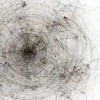Starting from Zero Belief
Assuming that you're starting from zero belief (i.e. no religion, no philosophy, no psychological principles, etc.) and that one’s belief actually shapes one’s reality, what would you consider a worthwhile belief to start with? Why? (Belief in the power to make the best choice of belief does not count.)
Well, I would start with the known facts about the universe and the world we live in. Turn to science for the evidence. Then when you have this, if you want a religious belief as well, try to choose one which can comfortably sit with the known facts. I cannot think of any religion which does this, but different people's minds work differently, so you may be able to make the evidence and your chosen faith fit together.
@Wilfion: Your answer somehow led me to insight on a belief (based on the two assumptions made on the question) that will cause for a religion and a science that complement instead of contradict each other. If I remember correctly, there was a time in history when philosophers were practicing scientists. Maybe in the distant future, the mystery of nature and its creation will become perceptible and comprehensible to ordinary beings, so that the distinction between religion and science becomes obscure.
First, I don't think it is possible for an adult to have no opinion, knowledge or feelings about religion, philosophy, or psychological principles, etc. Secondly, if you've convinced yourself you don't; why would you want to adopt a belief? It seems rather odd.
Your answer somehow led me to insight on a belief (based on the two assumptions made on the question) that will cause for a religion and a science that complement instead of contradict each other. If I remember correctly, there was a time in history when philosophers were practicing scientists. Maybe in the distant future, the mystery of nature and its creation will become perceptible and comprehensible to ordinary beings, so that the distinction between religion and science becomes obscure.
Hard indeed, it is an extreme mental exercise just trying to imagine a starting belief, after all the beliefs accumulated since birth. Even harder in practice. For for the daring souls, I wonder if there's some starting point to proceed forth with actual experimentation?
It's not about my not wanting to have a belief. I do have beliefs but wonder what refinements may yet be possible.
By the way, below answer was in answer to Wilfion. Sorry for posting in the wrong place.
This is hard to do. It's like trying to unknow something or unlove someone. ha.
I'll give it my best shot.
I think....I'd have to say that there are fundamental and glaring differences between mankind and the animals.Thanks for your sense of adventure. It’s good that we always have the choice what to believe unlike animals. And if it’s true what others say about our beliefs shaping our experience, maybe one of the most exciting adventures would be choosing our beliefs. Changing a belief which has worked for the majority, including us, in the past is really very difficult. Living out the new paradigm would be extremely harder. I really have not trodden such a path before and so it does seem that way (difficult) to me too. Who knows if it’s like breaking the barrier and going beyond the speed of sound, where a lightness of being can be felt? I hope mystics would speak up.
Why would you begin with the assumption that one's belief shapes one's reality? Do you find this to be generally true?
I'm afraid I may have missed something there, sorry.Thanks for an engaging question, mathsciguy! It may be because I have previously come from reading an Abraham book, which somehow temporarily took me on the experience of suspending my usually held limiting beliefs, and my curiosity arose as to whether beliefs are in fact shaping other people’s experiences too.
I can only speak for myself when I tell of my experience in believing that I am cared for and guided by forces beyond my perception. When I shifted to the paradigm, not long after, my previously negative circumstances and pessimistic outlook developed into a generally happier one. Worries still visit occasionally, but when I recall the paradigm, I am endowed with a feeling of ease, generally flowing with the moment instead of struggling through life.
You may get a glimpse of how beliefs have shaped the reality for visionaries and great masters such as George Lucas, who wrote Star Wars, from reading their works, but I’m not sure exactly where to point you to. This reminds me that I should get a copy of one of Star Wars the books, for better appreciation of the philosophical truths imbedded within the story (I only got to watch the movie).I forgot to mention: contemporary physics now teach that at the sub-atomic level, “solid” matter is nothing more than bundles of energy. As such, thoughts and emotions (also having energy) that spring from beliefs may indeed have the power to alter physical reality. The length of time may vary though, between altered states, I’m sure depending on several extraneous factors.
You are perhaps referring to the collapsing of what's sometimes called a probability wave in quantum physics. Another example would be something like the Schrodinger's Cat thought experiment in which a cat is interpreted to be simultaneously alive AND dead until an observer happens to collapse the possibilities into what we call "reality."
I can't claim to be well-versed in the subject of quantum physics though, but that is what my understanding is, so far.
But yes, I am aware of the theoretical relationship between matter and energy, although I am unconvinced that the two interact in the manner you seem to suggest. Experimental data could easily be provided if such were the case, right?Wow, thanks for mentioning about ‘the Schrodinger's Cat thought experiment in which a cat is interpreted to be simultaneously alive AND dead until an observer happens to collapse the possibilities into what we call "reality."’
I can’t claim to be an expert on anything, but as far as my gut feeling goes, it tells me that the observer (e.g. us) has the choice (e.g. between the cat being alive OR dead) as to what becomes of reality. Maybe the next question boils down to: whether the observer’s belief system or his actual, physical needs is the one that determines the choice?
There really is a lot to learn from diverse opinions and specializations! As the mystics say, the world becomes a world of wonder and adventure.Alas, if only this were the true implication of the nature of wave packets!
Unfortunately, it seems that the collapsing of the outcomes into one distinct reality is only something of a mathematical metaphor. Consider the toss of a coin, for example. It will either land on heads or tails - but until you actually check to see which one it has landed on, there exists the possibility of heads with 50% likelihood and the possibility of tails with 50% likelihood. These two possible states are in coexistence until you observe the coin to see which of the two outcomes it has received and "collapse" the possibilities into whatever the observed reality is.
This does not necessarily imply that you can, by some force of will, determine which "reality" is "real." As I understand it, this is an extension of the particle-wave duality of subatomic particles. Particles will behave as particles when under observation, but appear to have behaved as waves when only the aftermath of their effects is observed and not the actual behavior. That's not a great explanation of it though, and I'd strongly recommend some research of your own to get a better idea than what I can provide.
Interesting stuff, at any rate, eh?I have a delicious feeling (curiosity perhaps) rising about my need to explore basic concepts about sub-atomic particles, yes

The question is as to when that will happen. I know it will come when it will come.
Thanks for pointing the way, mathsciguy!No problem at all, Quirinus!
Happy researching!
I cannot honestly do as you ask. For the pure and simple fact that what one believes has nothing to do with reality.

Thanks for your honesty. The two assumptions (in my question) are extremes. In the spirit of this mental exercise, they are the Given's in the experiment. I try to put myself through the same question, and my answer somehow ends up stemming from a prior belief. I set aside answering my own question to a later time when I have sufficient opportunity to whittle one belief away at a time. Maybe that opportunity will lead me to the understanding of what humans experience as their first belief. I have read somewhere that babies started with the idea that the environment, e.g. the mother who was feeding them, was actually a part of their body. (If the baby’s idea/belief had the power to create the experience, then the mother would stay stuck to the baby as an extension of the latter’s body.)
There are some who believe in the power of belief. I don't find the need to defend their belief for them nor my beliefs. I just try to test out their ideas and adopt what works, toss out what doesn't. I appreciate your playing devil's advocate, Cagsil.You're welcome.
Extreme? Nope. Just completely irrational in nature.
It's not a true experiment, because beliefs are not tangible. They are based on thoughts and/or desires, and/or wishes, which have nothing to do with reality. It does have something to do with perception, but that's a whole new subject.
Then you're missing something.
Beliefs are never to be solidified, because they are just one aspect of living and we all know life is ever changing, so it would only make sense that beliefs also change.
It won't. It's a goal you cannot possibly achieve.
Possibly on a unrecognized sub-conscious level. But they are not fully aware of it. And, it wouldn't be a belief, it would be something known.
Right and those people are gullible. Unless you're talking about someone believing in someone else. Then yes it would have power.
I guess that would depend on what the belief is?
No thanks. What works for one, doesn't always work for someone else. However, that stems from ignorance anyways.
I wasn't trying to.I appreciate your answers leading me to further questions and answers. I imagine it may not be possible to conduct a “true” experiment on beliefs in the sense that a participant’s belief cannot be held as a controlled variable, since the veracity of the belief, i.e. whether the participant really believes or just thinks he/she believes cannot be ascertained. But on the personal level however I think that, with disciplined mindfulness, one can conduct experiments with one’s beliefs and use his/her perceptions (which are as you said, again subjective) to determine whether the belief actually works.
You are correct that like everything else, beliefs change. Everyone used to think the world was flat. In other words, based on empirical evidence, that belief is formed. It’s just like a hypothesis that is taken for fact unless otherwise proven, e.g. Einstein’s imagined E=mc2 (superscripted 2). It hasn’t been disproven so everyone takes it as the factual relationship between energy and mass.
It does seem to depend on what is covered by the belief. I too believe that belief in certain things or people has the power to shape experience. It seems that if you believe that someone is trustworthy, he/she does become trustworthy. I think this was mentioned somewhere as related to the self-fulfilling prophecy effect which is reciprocal in people. We trust then somehow we ourselves behave trustworthily.
If everyone’s’ set of beliefs varied as the number of unique individuals in the world, it goes to show that there couldn’t possibly exist one religion that can quench man’s yearning for the ultimate experience beyond that which can be provided by his physical senses. In my opinion, we are left with the choices of either assimilating the best from the best of religions or philosophies, or designing our own belief system based on our past experiences, must like Wilfion mentioned above.
This was precisely Descartes' project. His answer was: I think therefore I am. And God would not fool me about this.
I think my intellectual level does not have the capacity to grasp your meaning, aka I can't seem to understand "And God would not fool me about this."
To be honest the blurt from the back of my mind is as follows:
What does it mean when it is said that "God would not fool one about something"? Does it mean that God is fooling someone? Is this someone selective? What about is God fooling that someone with?
Just speaking my thoughts out, possibly out of curiosity, not to offend anyone whatsoever.
Getting oneself to the point where they start out with zero belief would be pretty darn hard.
An admirable goal, in my opinion. But hard. We believe things without even knowing we believe them or think them.That is the precise situation of the human nature. Thanks for the conciseness and honesty. I think that is why religions and philosophies are invented. We come upon beaten paths and trails that are easier to traverse as compared to when it was the visionaries' turn to blaze the path. Maybe our goal then is to be mature enough to open to various schools of thought and decipher which presents the best paradigm to fit our needs closest.
After choosing the best, tailor fit to put our own unique signature.
The body has to believe. It has to believe and accept the dangers of reality or die. So I would start with the body and what it must believe, independent of what the mind thinks the body should believe, like sleep is unproductive.
Let me check if I understand, one point at a time:
"The body has to believe" - we as individuals need to accept our external circumstances as our limit? If that is what it means, I think we might be closing our eyes to our unlimited potential. As an example, the cripple sees the other cripples in society as being unproductive, based on the body has to believe, he will limit himself to the mindset of being unproductive. We know for a fact that there are the lesser endowed among us who are able to even outperform the 'more capable', in terms of external appearances and physical attributes are concerned.
You are correct that sleep is productive, although even this I think some have already proven to be less effective than a certain number of hours of meditation. I'm not recommending this to anyone though. It may as yet have to be proven scientifically.
I generally think you are correct in saying, if I understand correctly, that we need to acknowledge the present reality and its limitations, including being in a physical body that conforms to the law of nature. Nonetheless what I believe is, beyond that, we should move forward with an idea in our head with the ideal of what the future us should become, e.g. visualization, which has been scientifically proven in fields such as sports and is the topic of the book about Neurolinguistic Programming (NLP). A good read would also be “Thinking Body, Dancing Mind: TaoSports for Extraordinary Performance in Athletics, Business and Life.”
Sort of an impossible question to answer. Beliefs are tied to and inseperable from knowledge, or experiences at least. I would imagine you would have to reboot the mind as a blank slate. We might ask, what is the first belief of an infant? Kinda think that what Brenda was saying is the closest to my understanding of the question. I imagine an adult, wiped of all memory, then perceiving something, such as the distinction between animals and people. To get to anything close to philosophy would take generations from this point.
Or if I were to play with the paradox as it is, going through my understanding and beliefs, trying not to let them influence me in making the decision to decide on a first belief.
Here's a couple tries:
I am superior to all other things and people I meet.
The sun is alive, thinking and controlling what is happening.Yes, yes, precisely. I think we would all be thinking somewhere along those lines as we observe the abilities we have compared to the things, living and non-living, around us. I imagine that would be precisely how our ancestors initiated our belief systems. Observing the what and comparing the us in relation. With the sun being up in the sky, it would then seem to be more powerful than ourselves since being in the sky is something we are not capable of doing. All those would answer the what.
But how about if we knew all the why;s? Wouldn't that be a delicious experience?
Well, why would I want to believe something that isn't credible? Perhaps, if everyone don't have any beliefs, the world will be a better place than you can imagine. Isn't nothing the best?
The place would be a place of wonder, phillippeengel! Everything would be like new every moment. If I understand what you mean-to have no preconceived ideas of what the present moment should be. I like that really. It's the theme of a few of my hubs---accepting the moment as it is.
Nonetheless, we also need to build a beautiful future in our minds. So that the future moments of wonder, influenced by our works in the past, would be as wondrous as they possibly could be.Thanks for your reply. Give up the beliefs and nature will take care of everything.
You must have really experienced what Ray Grigg meant by "in the sage, a beneficent universe expresses itself". Thanks for sharing your thoughts about how caring the universe can be. It does care for and nurture us, and grieve for us when we suffer, I believe.
Related Discussions
- 31
Are all beliefs irrational, or mainly religious beliefs?
by Baileybear 15 years ago
NOTE: This is posted on the PHILOSOPHY forum, not the religious forum.Beliefs - I don't want to know what your beliefs are; I'm interested in why people defend their beliefs, how they get their beliefs and if any beliefs are rational?eg is 'believing' in electricity a rational belief, or is it...
- 13
To what degree are we actually able to choose our beliefs or lack thereof?
by Elizabeth 10 years ago
To what degree are we actually able to choose our beliefs or lack thereof?I've often been told that I should choose this religion or that faith or choose to believe in something rather than not, but I don't necessarily think beliefs are an active choice. You cannot choose to disbelieve...
- 19
Religious Discussions On HubPages Seem Fanatical
by Justin R. Anthony 10 years ago
I normally pay no attention to religious discussions. Partially because people tend to loose their minds when the "R" word is mentioned. However, due to recent attention from the media on religious people who make fools of themselves by way of ridiculously over zealous beliefs that make...
- 35
Does it make me close minded if I can't understand why people are atheists?
by HannahRiley 9 years ago
Does it make me close minded if I can't understand why people are atheists?I guess how is the better way to say it. I seriously question everything...like facts from history, ect...but for some reason Ive never questioned religion. I grew up in a Christian home, not a SUPER Christian home, but one...
- 20
Why is it more comfortable to make things up about people of Different beliefs?
by Elizabeth 10 years ago
Why is it more comfortable to make things up about people of Different beliefs?There have been a rash of questions and answers lately from people (mainly self professing Christians) asking why atheists hate God, etc. Rather than listening to what atheists day and explain about...
- 30
What "GOOD" or "BENEFIT" Come From Religious Belief?
by Raymond D Choiniere 16 years ago
Dear posters, non-believer or believers:I've posted this topic to discuss 'religious beliefs' and the basis for which you formed your belief.I'm studying, through your comments, your methodology/thinking, which you form your belief.I'm looking for a "GOOD" or "BENEFIT" aspect...














